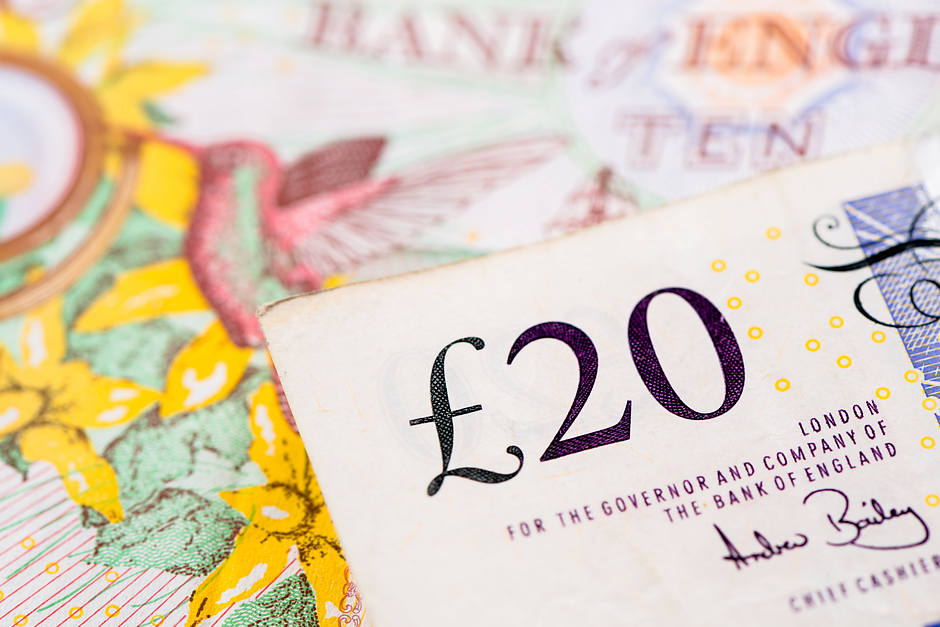GBP/USD lacks firm near-term direction, remains confined in a range around mid-1.2600s
- GBP/USD continues with its struggle to gain any meaningful traction on Tuesday.
- Bets for a BoE rate cut in August act as a headwind amid modest USD strength.
- Traders also prefer to wait on the sidelines ahead of the UK election on Thursday.

The GBP/USD pair extends its sideways consolidative price move during the Asian session on Tuesday and remains confined in a familiar range held over the past two weeks or so. Spot prices currently trade around the 1.2655-1.2645 confluence region – comprising 50-day and 100-day Simple Moving Averages (SMAs) – amid the anxiety surrounding the upcoming UK general elections on Thursday.
In the meantime, the Bank of England's (BoE) dovish pause in June, which lifted bets for a rate cut at the August monetary policy meeting, continues to undermine the British Pound (GBP). The US Dollar (USD), on the other hand, builds on the overnight solid bounce from a multi-day low and further seems to act as a headwind for the GBP/USD pair. The yield on the benchmark 10-year government bond shot to its highest level in a month on Monday amid concerns that the imposition of aggressive tariffs by the Trump administration could fuel inflation and trigger higher interest rates.
Apart from this, This, along with a softer tone around the US equity futures, lends some support to the safe-haven Greenback. That said, growing acceptance that the Federal Reserve (Fed) will begin its rate-cutting cycle in September keeps a lid on any further upside for the US bond yields. The expectations were reaffirmed by the US ISM PMI on Monday, which showed the US manufacturing sector contracted for the third straight month in June. This, along with signs that inflation in the US is subsiding, should allow the US central bank to start lowering borrowing costs.
Traders might also prefer to wait for more cues about the Fed's rate-cut path before positioning for the next leg of a directional move. Hence, the focus will remain glued to Fed Chair Jerome Powell's speech later this Tuesday and FOMC meeting minutes on Wednesday. Apart from this, the US monthly employment details, popularly known as the Nonfarm Payrolls (NFP) report, due for release on Friday, will play a key role in influencing the near-term USD price dynamics.
Pound Sterling FAQs
The Pound Sterling (GBP) is the oldest currency in the world (886 AD) and the official currency of the United Kingdom. It is the fourth most traded unit for foreign exchange (FX) in the world, accounting for 12% of all transactions, averaging $630 billion a day, according to 2022 data. Its key trading pairs are GBP/USD, aka ‘Cable’, which accounts for 11% of FX, GBP/JPY, or the ‘Dragon’ as it is known by traders (3%), and EUR/GBP (2%). The Pound Sterling is issued by the Bank of England (BoE).
The single most important factor influencing the value of the Pound Sterling is monetary policy decided by the Bank of England. The BoE bases its decisions on whether it has achieved its primary goal of “price stability” – a steady inflation rate of around 2%. Its primary tool for achieving this is the adjustment of interest rates. When inflation is too high, the BoE will try to rein it in by raising interest rates, making it more expensive for people and businesses to access credit. This is generally positive for GBP, as higher interest rates make the UK a more attractive place for global investors to park their money. When inflation falls too low it is a sign economic growth is slowing. In this scenario, the BoE will consider lowering interest rates to cheapen credit so businesses will borrow more to invest in growth-generating projects.
Data releases gauge the health of the economy and can impact the value of the Pound Sterling. Indicators such as GDP, Manufacturing and Services PMIs, and employment can all influence the direction of the GBP. A strong economy is good for Sterling. Not only does it attract more foreign investment but it may encourage the BoE to put up interest rates, which will directly strengthen GBP. Otherwise, if economic data is weak, the Pound Sterling is likely to fall.
Another significant data release for the Pound Sterling is the Trade Balance. This indicator measures the difference between what a country earns from its exports and what it spends on imports over a given period. If a country produces highly sought-after exports, its currency will benefit purely from the extra demand created from foreign buyers seeking to purchase these goods. Therefore, a positive net Trade Balance strengthens a currency and vice versa for a negative balance.
Author

Haresh Menghani
FXStreet
Haresh Menghani is a detail-oriented professional with 10+ years of extensive experience in analysing the global financial markets.

















